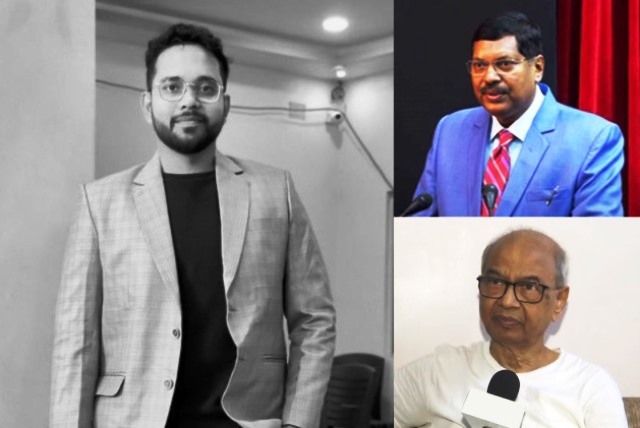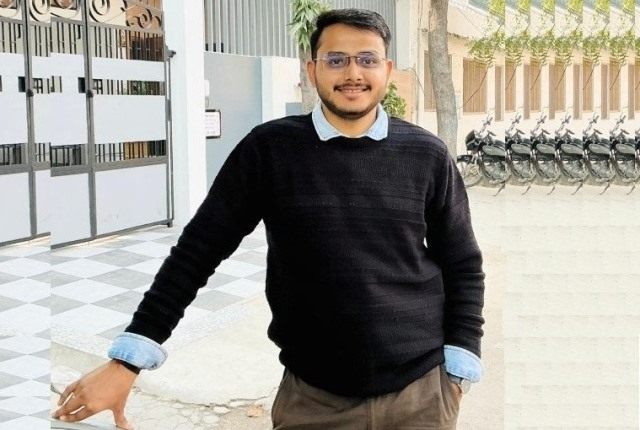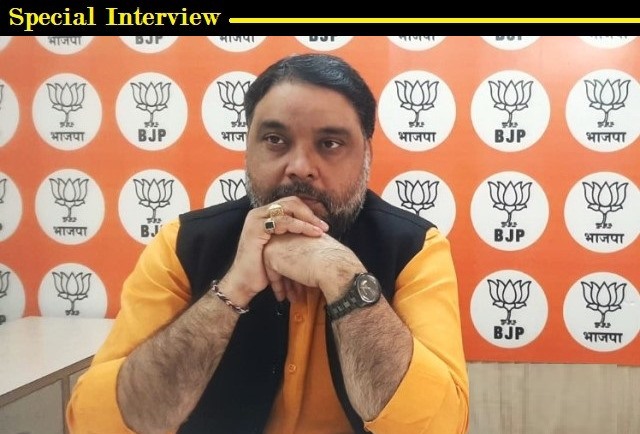
‘Placing Arguments Is Civil Discourse; Flinging Footwear Is Vulgar Publicity’
Navonil Dey, an Asst Professor at Egra Sarada Shashi Bhusan College, West Bengal, says civilised dialogue is under threat from social media & publicity stunts. His views:
A recent unsavory episode inside the premises of the Supreme Court has once again forced us to confront a troubling question: are we witnessing a moral and intellectual decline in our civilization and society? If so, what is the purpose of education and higher learning when public opinion is swayed more by social media uproars than by facts, rationality – a decent and reasoned debate?
There was a time when public argument in India meant reasoned disagreement rather than theatrical hostility. Civilised discourse, once a collective strength, now appears to be under serious threat.
A single incident of disrespect toward the Chief Justice of India compels us to question our claim to being a civilised society. Acts such as slapping, shoe-throwing, and mudslinging, even from individuals in high office, seem to have become disturbingly frequent.
Indeed, these are not isolated outbursts, but are often celebrated spectacles on social and mainstream media, pointing to a deeper crisis in the nation’s political culture, and its social culture of public discourse.
This terrible incident inside the apex court also highlights the role social media platforms play in distorting statements, provoking outrage, and exploiting religious sentiments for digital entertainment. What makes this collapse particularly alarming is that it occurred within an institution meant to exemplify decorum and respect. Vicious trolling, mob- mentality and online toxicity have crossed tolerable limits, blurring the line between legitimate dissent and outright disrespect.
Actions once deemed vulgar — like throwing slippers at judges or politicians, splashing ink, hurling insults, or overt acts of misogyny — are increasingly being viewed as symbolic acts of justice. Political mudslinging seems to have become ritualistic, often enacted by uneducated leaders for an equally uninformed audience.
Emotional sound-bites and sensational insults now attract more attention than thoughtful policy debates (as on some television screens), because they are easier for the public to take in. This shift has corroded the culture of reasoned dialogue and fueled the rise of anti-intellectualism.
ALSO READ: ‘Activism Without Empathy Is Noise, A Publicity Stunt’
Those who raise questions, cite laws, or provide historical contexts are often mocked or dismissed. Social (and mainline) media echo chambers and algorithm-driven feeds reinforce comfortable, biased narratives, while excluding opposing views.
Many people, fearing social isolation or trolling, choose silence over reasoned discussion. The preference for simplified outrage over critical engagement fosters political illiteracy. Some leaders exploit this vulnerability, stirring emotions rather than encouraging reflection.
Even history has become a contested space, where myth replaces memory and noise overtakes nuance. Freedom of speech, once the bedrock of democracy, is increasingly misused as a tool for ideological warfare rather than dialogue. The diversity of thought, a hallmark of India’s rich intellectual tradition, is being eroded by a culture that equates volume with validity.
True understanding often begins in silence. It grows through empathy and listening, not shouting. The Indian public sphere, once known for the power of words and civil disagreement, risks becoming a marketplace of insults.
Debates have transformed into battles. The younger generation is witnessing this degradation firsthand, learning to view society not as a moral and intellectual exercise, but as a theatre of aggression.
If this path continues, coarseness and hooliganism will no longer be condemned but celebrated as signs of authenticity and strength, endlessly amplified within digital echo chambers. Unless we shift focus from spectacle to substance, political culture will continue to favour mob-emotion over moral reasoning.
Dialogue, education, and empathy remain our last lines of defense. These qualities alone can help rebuild a community fractured by distrust and division. Without them, competence will be drowned out by visibility, and noise will silence thoughtful discourse.
“A great civilisation is not conquered from without until it has destroyed itself from within,” said Will Durant. Historian Durant’s warning remains urgent: no external enemy can destroy a civilisation that honours rationale, civility, and moral courage.
But, when we throw away these values, when we confuse noise for truth and outrage for wisdom, we risk destroying ourselves from within.
(Beyond academia, the narrator writes on politics, society, and culture, exploring how ideas, discourse, and power intersect in shaping the modern world)
As told to Amit Sengupta



